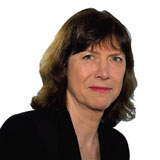A professional approach means being able to say no

Three times last week I heard a consultancy head anguishing about how to motivate the team after losing two or three consecutive pitches. It isn’t always easy, without drama school training, to pick yourself up and fight on.
Whatever impact losing a pitch has on the business, it isn’t just about gambling time and money in pursuit of a lucrative return. It is also about exposing yourself to scrutiny from the client, whose understanding of design may be suspect, and being found lacking. And, however philosophical you are about it, it hurts.
There are other ways of doing things. Rosters are said by some to ease the pain, once you’re on them. But Canadian ‘sales consultant’ Blair Enns advocates ‘selling’ your wares, as far as possible, on your own terms.
On Friday, Enns persuaded a Design Business Association audience in London to ‘think doctor or lawyer’ – in other words professional adviser – rather than supplier. Experts, he said, are prepared to say no. They employ expert processes and diagnose before prescribing – hence no creative pitching – and they exude integrity or ‘indignation’.
Do you exude integrity and are you openly indignant at inappropriate client demands? You may be confident about your creative skills and uphold your values, but what happens in a pitch when the heat is on?
Most in design opt for a soft approach, dressing up ‘sales’ as ‘new business’, which is why pitches are rampant and rewards generally scant. Enns advocates bypassing, or at least derailing, that costly pitch through cash deals and concessions.
Offer instead to split the project into prepaid sections – proposal, strategy, design and implementation – with a money-back guarantee to the client for any that proves unsuccessful, says Enns. But insist on being paid up front and having access to top people on the client side.
Enns makes good sense. It is about having confidence from the outset – and saying no if the fit is wrong. It avoids having to rebuild morale when things go awry.
Lynda Relph-Knight – editor
-
Post a comment




